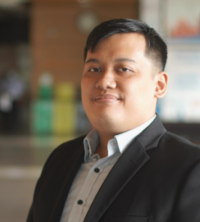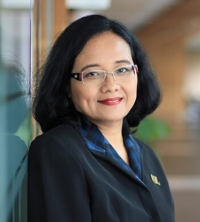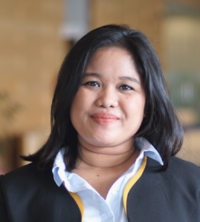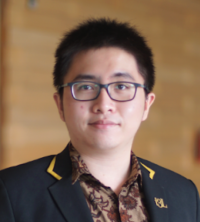About Us
HISTORY
- Indonesia International Institute for Life Sciences (i3L) (Institut Bio Scientia Internasional Indonesia), an Institute of Higher Education whose ideas are supported by the government and the industry, is an institute established by the Indonesia Scientia International Foundation. Since its inception in accordance with Decree 207/E/O/2013, the Indonesian International Institute for Life Sciences (i3L) has given special attention to research activities and community services.
- The Research and Community Service Department (Lembaga Penelitian dan Pengabdian Masyarakat – LPPM) of i3L was officially formed in 2016 in accordance with the Rector’s Decree No. 007A/SK. REK/VII/2016. This was also followed by the appointment of the Head of the Research and Community Service Department at the Indonesian International Institute for Life Sciences (i3L) based on Decree No. 003/SK.HC/I/2020 to demonstrate the institution’s commitment to carrying out the tridharma activities in the field of research and community services.
- Since the establishment of the Research and Community Service Department, i3L has facilitated and encouraged academics within the institution to conduct research and community services, whether done individually, between lecturers, or in groups. The Research and Community Service Department of i3L has the task, function, and authority to identify and apply for Intellectual Property Rights (IPR), publication of scientific publications, and textbooks. The LPPM Institute has also provided facilities such as socialization and training, internal funding schemes, monitoring and evaluation activities, as well as submissions for institutional physical facilities that can be proposed and involved in research and community service activities.
- There are several types of community service programs that have been carried out and are currently ongoing at i3L, including a community development program that focuses on developing modules for child development in collaboration with HORE (House of Reading and Education) which has been running since 2014. Community service activities have also been carried out in Integrated Healthcare Centers, PAUDs, and elementary schools near the campus in Pulomas, at RPTRA in Cempaka Putih, and many more. During the COVID-19 pandemic, online community service activities have been carried out for high schools across Indonesia.
VISION
- “To become a superior and globally connected interdisciplinary higher education institution that has a direct impact on society through science and innovation.”
MISSION
- Accelerate Indonesia's competitiveness by utilizing science, innovation, and the uniqueness of national resources so that it has a global impact.
- Provide a unique, cross-disciplinary, and integrated learning environment.
- Forming a new generation of leaders.
GOALS
- Providing an ideal and applicable learning environment to improve the ability to think in an integrative and multi-perspective way in conducting research, innovation, managerial, and decision-making that has a global view in advancing the industrial world at national and international levels.
- Creating a strong, creative, and innovative research culture to answer local and global challenges.
- Have high social sensitivity and still refer to the ability to think strategically in initiating community development that is useful for business circles, the wider community, and the environment through various research and learning activities.
- To become an international standard institute by developing sustainable human resources capable of competing at a global level.
- Ensuring the establishment of a network of national and international cooperation with strong support from academia, industry, and government that is woven through the "triple helix" concept.
ORGANIZATION

- Head of Research and Community Service
Rizky Nurdiansyah, S.Si., M.Si.

- Community Service Coordinator
Siti Muslimatun, S.TP., M.Sc., Ph.D.

- Research Administration Coordinator
Givens Pratiwi, S.Pi.

- Research and Community Service Staff
William Hery, S.TP.
STRATEGIC PLAN
The strategic target of research activities at Indonesia International Institute for Life Sciences (i3L) is a reflection of the vision and mission statements of the institution.
Several main strategy formulations were made to achieve strategic objectives, namely

- Achieving good academic quality

- Producing high-impact research

- Internationalization and collaborations at national, regional, and international levels
- High-impact research is research aimed to become applied research. Therefore, it is hoped that as an outcome of the research, in addition to improving the abilities of lecturers and students, it may also impart a positive and significant impact on the progress and welfare of local and global communities.
Some of the strategies in the field of research are as follows:

Focusing on research in the field of life sciences by focusing on five leading research areas, namely
- Food Innovation and Nutrition
- Health and Well-Being
- Bio-Products and Sustainable Development
- Information Technology in Life Sciences
- Valorization of Life-Sciences

Focusing on innovative research with the aim of commercialization by utilizing research grants both from within and outside the country as well as collaboration with industry.

Encouraging collaboration between researchers and institutional lecturers with external researchers or researchers from other universities.

Conducting knowledge-sharing sessions with experts in the field of research as well as the initiation of collaborations.

Increasing the number of SCOPUS indexed publications, patents, and certified products.
The Community Service activities carried out at i3L have also been going well. The goals and objectives of implementing Community Service activities in the future will focus more on finding a wider form of cooperation by cooperating with the government (government) or local governments.
As an institution that focuses on providing education in the field of life sciences, i3L is committed to contributing to society in the form of training and development in the fields of education, science, health and entrepreneurship, and business. Every year, i3L strives to develop programs that involve not only lecturers but also students. This is intended to stimulate the younger generation to be more actively involved in research activities.
